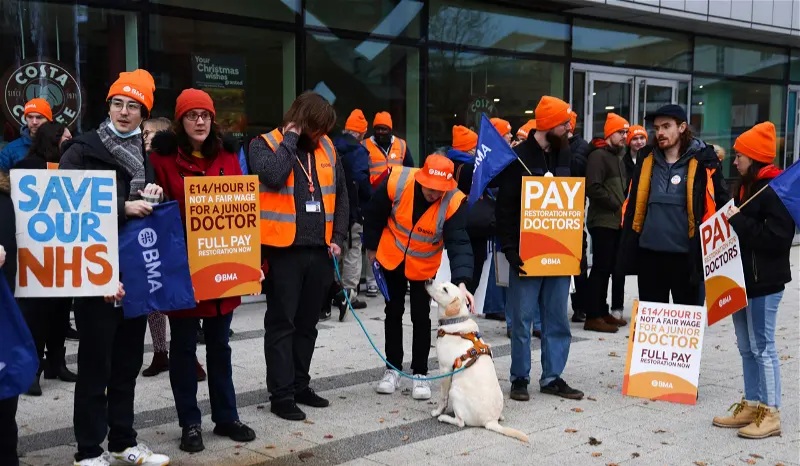UK Doctors Begin Six-Day Strike
Junior Doctors in England have begun a six-day strike on Wednesday, marking the longest consecutive strike in the seven-decade history of the National Health Service, Excel Magazine International has gathered.
The escalation of their pay dispute with the UK government adds strain to the NHS during a peak period for winter respiratory illnesses.
This action, following a three-day strike just before Christmas, intensifies pressure on the state-funded healthcare system, potentially affecting nearly half of the medical workforce on picket lines and causing a significant impact on routine care.
The NHS, already grappling with backlogs from delayed treatments during the pandemic and years of underfunding, anticipates January to be one of its most challenging starts to the year.
The strike, initiated by the British Medical Association (BMA) after failed talks with the government, rejects an offer of a 3.0-percent rise, deeming it unevenly distributed among different doctor grades and resulting in pay cuts for many.
Prime Minister Rishi Sunak and hospital leaders criticize the strike, emphasizing the potential hardships it poses to healthcare services.
The strike, starting at 7:00 am and scheduled until January 9, raises concerns about the NHS’s ability to cope during a period traditionally marked by increased hospital admissions.
While health policy is a devolved matter for Scotland, Wales, and Northern Ireland, the UK government oversees matters in England.
Junior doctors in Wales plan a 72-hour strike from January 15, while those in Northern Ireland consider potential strike action. Scottish counterparts have reached a deal with the government in Edinburgh.
As the NHS grapples with the aftermath of this strike and the ongoing challenges of the healthcare system, the public health implications and the government’s response remain critical issues on the national agenda.










